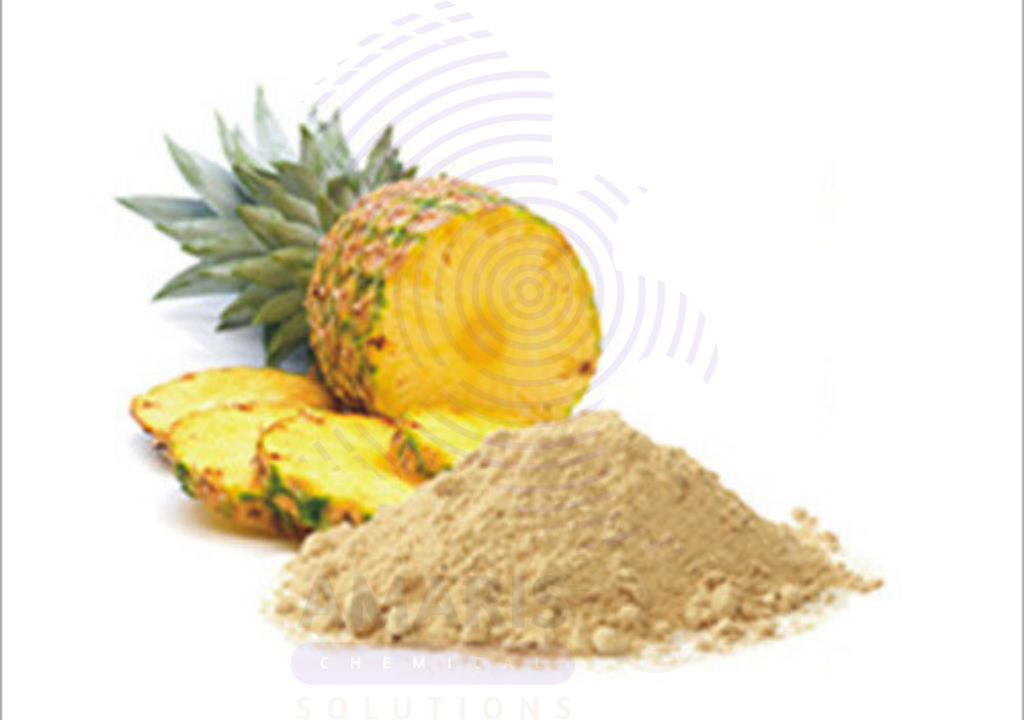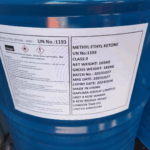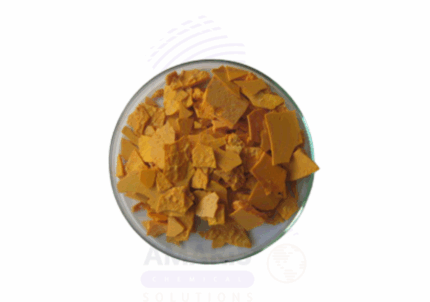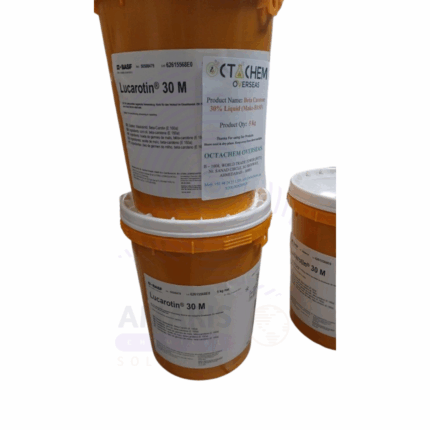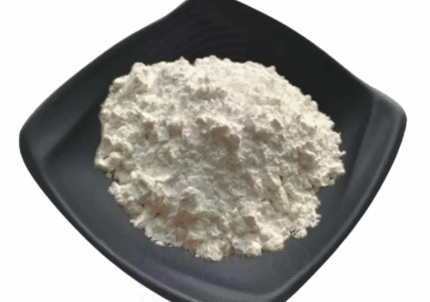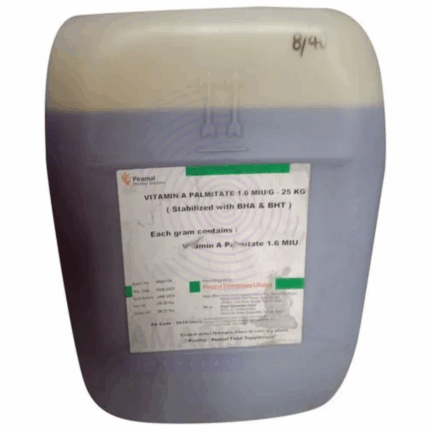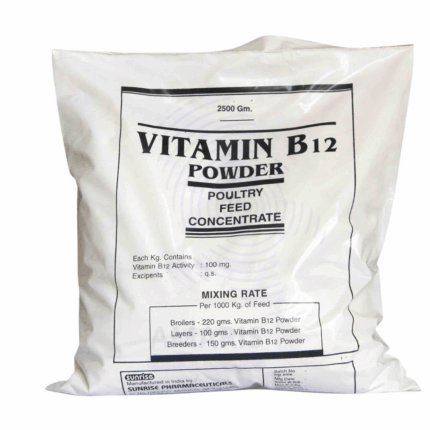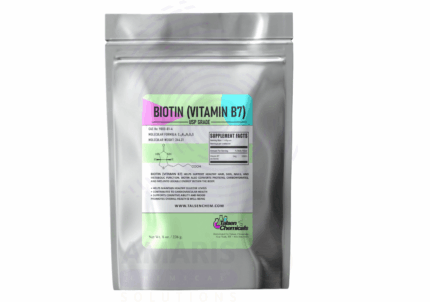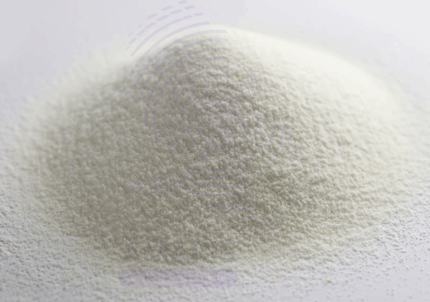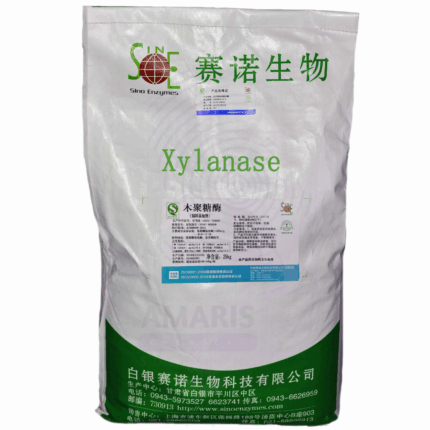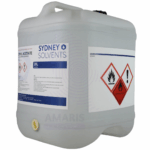
Ethyl Acetate
$ 3.40 Original price was: $ 3.40.$ 3.29Current price is: $ 3.29.
Pineapple Enzyme Powder
Whatsapp Order
Pineapple Enzyme Powder is a fine, light-colored powder derived from the fruit and stem of the pineapple (Ananas comosus), containing the proteolytic enzyme bromelain. It is produced via extraction and subsequent drying (usually spray or freeze-drying) to preserve enzymatic activity. Known for its protein-digesting, anti-inflammatory, and exfoliating properties, this enzyme is widely used across food, nutraceutical, cosmetic, and pharmaceutical industries.
Category: Enzymes
Tags: Bromelain Powder, Fruit Enzyme, Natural Enzyme, Nutraceuticals, Pineapple Enzyme Powder, Pineapple Extract
Description
Table of Contents
Toggle
Pineapple Enzyme Powder
Primary Uses
- Food & Beverage Industry
- Used as a meat tenderizer due to its ability to break down proteins (commonly in marinades and seasoning blends).
- Employed in brewing and baking to prevent protein haze and improve texture.
- Acts as a digestive aid in health drinks and enzyme supplements.
- NutraceutiPricals & Dietary Supplements
- Formulated in capsules and powders to support protein digestion and improve gut health.
- Promotes anti-inflammatory effects for joint support and post-exercise recovery.
- Included in systemic enzyme therapy for immune modulation and tissue repair.
- Cosmetics & Personal Care
- Used in facial scrubs, masks, and cleansers as a natural exfoliant, helping to remove dead skin cells.
- Aids in skin brightening and reducing hyperpigmentation.
- Applied in anti-acne formulations for its anti-inflammatory and antimicrobial benefits.
- Pharmaceuticals
- Utilized in wound debridement ointments to remove necrotic tissue.
- Aids in reducing swelling, bruising, and inflammation post-surgery or injury.
Secondary Uses
- Animal Feed Additive
- Added to animal diets to enhance protein digestion and nutrient absorption, especially in poultry and swine.
- Textile Industry
- Used in bio-scouring to remove starch, protein, and other sizing materials from fabrics naturally.
- Waste Management
- Employed in organic waste breakdown and composting processes due to its protease activity.
- Oral Care Products
- Used in enzymatic toothpastes and mouth rinses for plaque reduction and oral hygiene.
KEY PRODUCT FEATURES
1. Basic Identification Attributes
- Botanical Source: Ananas comosus (Pineapple)
- Common/Trade Name: Pineapple Enzyme Powder
- CAS Number: 9001-00-7 (Bromelain)
- HS Code: 3507.90.90 (Enzymes and prepared enzymes, others)
- Synonyms: Bromelain powder, Pineapple protease, Natural proteolytic enzyme
2. Physical & Chemical Properties
- Physical State: Fine powder
- Color & Odor: Off-white to light yellow; slight pineapple-like or neutral odor
- Solubility: Soluble in water
- pH Range: Active in pH 4.5 – 7.5
- Enzymatic Activity: Typically measured in GDU (Gelatin Digesting Units) or FCC PU (Papain Units)
3. Safety & Hazard Attributes
- GHS Classification: Not classified as hazardous; may cause respiratory or skin sensitization in sensitive individuals
- Toxicity: Non-toxic when used as directed; avoid inhalation of dust
- Exposure Limits: Not established; standard handling precautions recommended
4. Storage & Handling Attributes
- Storage Conditions: Store in a cool, dry place (15–25°C); keep away from moisture and direct sunlight
- Container Type: Sealed, food-grade plastic or foil-lined drums
- Shelf Life: 12–24 months depending on packaging and storage conditions
- Handling Precautions: Avoid creating dust; use protective mask and gloves if handling in bulk
5. Regulatory & Compliance Attributes
- Complies with:
- FCC (Food Chemical Codex)
- USP (United States Pharmacopeia)
- GRAS (Generally Recognized as Safe) for food use
- Approved for cosmetic and supplement applications under global regulations
6. Environmental & Health Impact
- Biodegradability: Fully biodegradable
- Ecotoxicity: Not harmful to the environment in normal use concentrations
- Allergenic Potential: Possible sensitizer for individuals with enzyme sensitivities
SAFETY HANDLING PRECAUTIONS
Safety Handling Precautions
- PPE Required: Dust mask, gloves, and eye protection recommended
- Handling Guidelines: Avoid inhalation and contact with eyes; use in ventilated areas
- Storage Measures: Keep container tightly closed and moisture-free
First Aid Measures
- Inhalation: Remove to fresh air; seek medical attention if respiratory irritation persists
- Skin Contact: Wash with water; discontinue use if irritation occurs
- Eye Contact: Rinse thoroughly with water for 15 minutes; seek medical attention if irritation continues
- Ingestion: Non-toxic in small quantities; rinse mouth with water if discomfort arises
Firefighting Measures
- Fire Hazards: Non-flammable
- Extinguishing Media: Water spray, CO₂, foam, or dry chemical
- Special Precautions: Avoid dust formation; handle powder with care
- Hazardous Combustion Products: Carbon dioxide, carbon monoxide (in extreme heat)
Related products
Bating Agent
Bating Agent is a biochemical preparation used primarily in the leather processing industry during the bating stage, which follows liming and deliming. It consists mainly of proteolytic enzymes (such as pancreatin, trypsin, or subtilisin) that break down non-collagenous proteins, hair residues, and unwanted tissue from hides and skins. This enzymatic treatment softens the leather, improves its texture and pliability, and prepares it for tanning. The bating process enhances the quality, uniformity, and appearance of the final leather product.
Beta Carotene
Beta Carotene is a concentrated formulation of beta carotene, a naturally occurring red-orange pigment found in plants and fruits. It is a precursor to vitamin A and a potent antioxidant that helps protect cells from oxidative damage. This product, typically suspended in an oil base or suitable carrier, is widely used as a natural colorant, nutritional supplement, and cosmetic ingredient. Beta Carotene 30% SUN offers enhanced stability under sunlight exposure, making it ideal for food, feed, and cosmetic applications where light stability is critical.
Phloretin
Phloretin is a natural dihydrochalcone flavonoid primarily extracted from apple tree leaves and other fruit sources. It is recognized for its potent antioxidant properties and its ability to inhibit melanin synthesis, making it highly valued in cosmetic and pharmaceutical industries. Phloretin is a yellowish crystalline powder with low solubility in water but good solubility in organic solvents. It is widely used in skincare formulations for its skin-brightening, anti-aging, and anti-inflammatory benefits.
Powdered Vitamin A Palmitate
Powdered Vitamin A Palmitate is a stable, fat-soluble ester of vitamin A widely used as a dietary supplement and food fortification ingredient. It is an essential nutrient important for vision, immune function, skin health, and cellular growth. The powdered form offers ease of handling and incorporation into various food, pharmaceutical, and cosmetic products due to its stability and bioavailability.
Vitamin B12 USP32
Vitamin B12 USP32 is a pharmaceutical-grade, water-soluble vitamin essential for red blood cell formation, neurological function, and DNA synthesis. This product meets the United States Pharmacopeia (USP) 32 standards, ensuring high purity and quality suitable for pharmaceutical and nutraceutical applications. Vitamin B12 USP32 is commonly supplied as cyanocobalamin or hydroxocobalamin forms, used in injections, tablets, and fortified food products.
Vitamin B7 (Biotin)
Vitamin B7 Biotin, also known as Biotin, is a water-soluble B-complex vitamin essential for various metabolic processes. It serves as a coenzyme for carboxylase enzymes involved in the metabolism of fatty acids, amino acids, and glucose. Biotin is vital for healthy skin, hair, nails, and nervous system function. It is widely used in the pharmaceutical, nutraceutical, food, cosmetic, and animal nutrition industries.
Vitamin D3100,000 IU/GM
Vitamin D3100,000 IU/GM, also known as High-Potency Cholecalciferol, is a concentrated form of Vitamin D3 commonly used in pharmaceutical formulations, fortified food products, animal feed, and dietary supplements. This form delivers 100,000 International Units (IU) of cholecalciferol per gram, ensuring efficient delivery of therapeutic or nutritional doses in small volumes. It is produced under stringent quality standards to ensure stability, potency, and safety.
Xylanase Baking Enzymes
Xylanase Baking Enzymes are specialized enzymes used in the baking industry to improve dough handling, bread volume, crumb structure, and overall product quality. These enzymes catalyze the breakdown of xylans (non-starch polysaccharides in cereal cell walls), reducing dough viscosity and enhancing gas retention during fermentation. This results in improved texture, softness, and shelf life of baked goods.


 Preservatives(food)
Preservatives(food) Flavor Enhancers
Flavor Enhancers Acidulants
Acidulants Sweeteners
Sweeteners Antioxidants
Antioxidants Colorants(food)
Colorants(food) Nutraceutical Ingredients (food)
Nutraceutical Ingredients (food) Nutrient Supplements
Nutrient Supplements Emulsifiers
Emulsifiers
 Collectors
Collectors Dust Suppressants
Dust Suppressants Explosives and Blasting Agents
Explosives and Blasting Agents Flocculants and Coagulants
Flocculants and Coagulants Frothers
Frothers Leaching Agents
Leaching Agents pH Modifiers
pH Modifiers Precious Metal Extraction Agents
Precious Metal Extraction Agents
 Antioxidants(plastic)
Antioxidants(plastic) Colorants (Pigments, Dyes)
Colorants (Pigments, Dyes) Fillers and Reinforcements
Fillers and Reinforcements Flame Retardants
Flame Retardants Monomers
Monomers Plasticizers
Plasticizers Polymerization Initiators
Polymerization Initiators Stabilizers (UV, Heat)
Stabilizers (UV, Heat)
 Antifoaming Agents
Antifoaming Agents Chelating Agents
Chelating Agents Coagulants and Flocculants
Coagulants and Flocculants Corrosion Inhibitors
Corrosion Inhibitors Disinfectants and Biocides
Disinfectants and Biocides Oxidizing Agents
Oxidizing Agents pH Adjusters
pH Adjusters Scale Inhibitors( water)
Scale Inhibitors( water)
 Antioxidants(cosmetic)
Antioxidants(cosmetic) Emollients
Emollients Fragrances and Essential Oils
Fragrances and Essential Oils Humectants
Humectants Preservatives
Preservatives Surfactants(cosmetic)
Surfactants(cosmetic) Thickeners
Thickeners UV Filters
UV Filters
 Fertilizers
Fertilizers Soil Conditioners
Soil Conditioners Plant Growth Regulators
Plant Growth Regulators Animal Feed Additives
Animal Feed Additives Biostimulants
Biostimulants Pesticides (Herbicides, Insecticides, Fungicides)
Pesticides (Herbicides, Insecticides, Fungicides)
 Active Pharmaceutical Ingredients (APIs)
Active Pharmaceutical Ingredients (APIs) Excipients
Excipients Solvents(pharmaceutical)
Solvents(pharmaceutical) Antibiotics
Antibiotics Antiseptics and Disinfectants
Antiseptics and Disinfectants Vaccine Adjuvants
Vaccine Adjuvants Nutraceutical Ingredients (pharmaceutical)
Nutraceutical Ingredients (pharmaceutical) Analgesics & Antipyretics
Analgesics & Antipyretics
 Analytical Reagents
Analytical Reagents Solvents(lab)
Solvents(lab) Chromatography Chemicals
Chromatography Chemicals Spectroscopy Reagents
Spectroscopy Reagents microbiology-and-cell-culture-reagents
microbiology-and-cell-culture-reagents Molecular Biology Reagents
Molecular Biology Reagents Biochemical Reagents
Biochemical Reagents Inorganic and Organic Standards
Inorganic and Organic Standards Laboratory Safety Chemicals
Laboratory Safety Chemicals Specialty Laboratory Chemicals(Special Laboratory Equipment)
Specialty Laboratory Chemicals(Special Laboratory Equipment)
 Demulsifiers
Demulsifiers Hydraulic Fracturing Fluids
Hydraulic Fracturing Fluids Scale Inhibitors(oil)
Scale Inhibitors(oil) Surfactants(oil)
Surfactants(oil) Drilling Fluids
Drilling Fluids
 Dyes and Pigments
Dyes and Pigments Bleaching Agents
Bleaching Agents Softening Agents
Softening Agents Finishing Agents
Finishing Agents Antistatic Agents
Antistatic Agents
 Admixtures
Admixtures Waterproofing Agents
Waterproofing Agents Sealants and Adhesives
Sealants and Adhesives Curing Compounds
Curing Compounds Concrete Repair Chemicals
Concrete Repair Chemicals Anti-Corrosion Coatings
Anti-Corrosion Coatings
 Surfactants(cleaning)
Surfactants(cleaning) Builders
Builders Enzymes
Enzymes Solvents (Cleaning)
Solvents (Cleaning) Fragrances
Fragrances
 Electronic Chemicals
Electronic Chemicals Catalysts
Catalysts Lubricants
Lubricants Photographic Chemicals
Photographic Chemicals Refrigerants
Refrigerants Automotive chemicals
Automotive chemicals Pyrotechnic Chemicals
Pyrotechnic Chemicals
 Biodegradable Surfactants
Biodegradable Surfactants Bio-based Solvents
Bio-based Solvents Renewable Polymers
Renewable Polymers Carbon Capture Chemicals
Carbon Capture Chemicals Wastewater Treatment Chemicals
Wastewater Treatment Chemicals
 Pigments
Pigments Solvents(paint)
Solvents(paint) Specialty Coatings
Specialty Coatings Binders/Resins
Binders/Resins Additives
Additives Driers
Driers Anti-Corrosion Agents
Anti-Corrosion Agents Functional Coatings
Functional Coatings Application-Specific Coatings
Application-Specific Coatings
 Fresh Herbs
Fresh Herbs Ground Spices
Ground Spices Whole Spices
Whole Spices Spice Blends
Spice Blends Dried Herbs
Dried Herbs
 Leavening Agents
Leavening Agents Dough Conditioners
Dough Conditioners Flour Treatments
Flour Treatments Fat Replacers
Fat Replacers Decoratives
Decoratives Preservatives(baking)
Preservatives(baking)
 Plasticizers & Softeners
Plasticizers & Softeners Reinforcing Agents
Reinforcing Agents Adhesion Promoters
Adhesion Promoters Vulcanizing Agents
Vulcanizing Agents Antidegradants
Antidegradants Blowing Agents
Blowing Agents Fillers & Extenders
Fillers & Extenders Accelerators & Retarders
Accelerators & Retarders